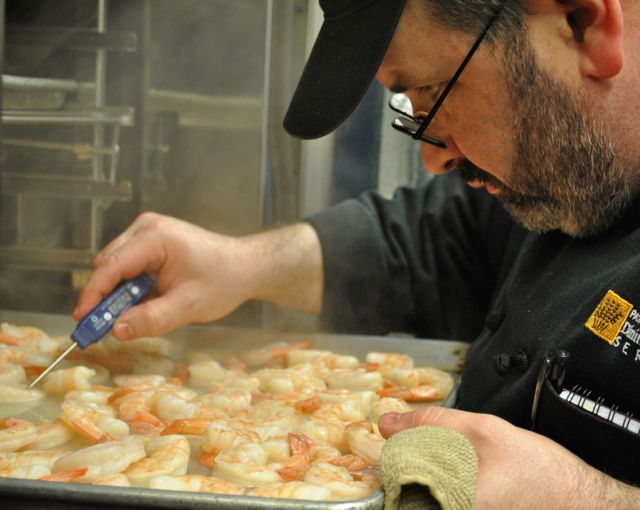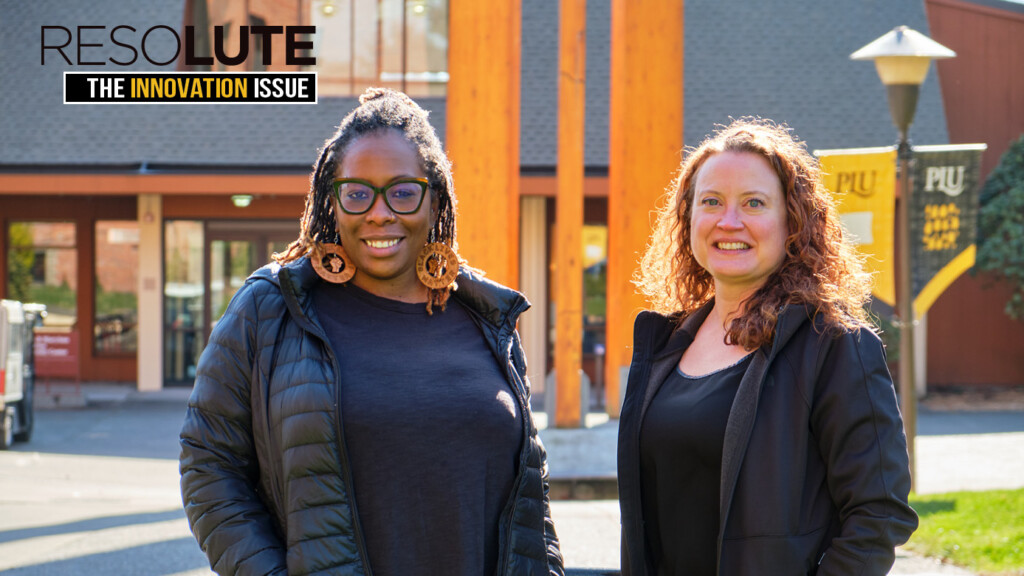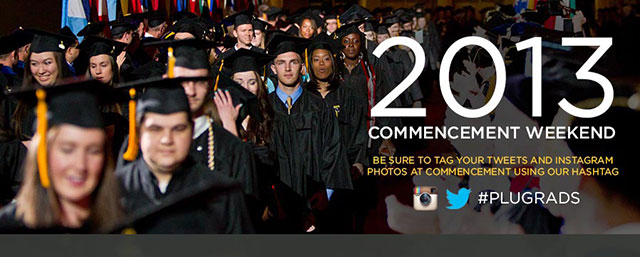Page 100 • (999 results in 0.102 seconds)
-
macaron stands!)—is combined not with Austen’s own prose or language, but with the common cant of today. In other words, it feels destined to satisfy neither view of Austen that Dames proposes. NPR certainly takes this view: “The film tries to be of its own time and contemporary, with Austen characters talking about self-care and being ‘single and thriving.’” A complaint in reviews of Cranknell’s Persuasion is about its use of language common to today, not particular to Austen. The Los Angeles Times’s
-

used to care less about what she ate and where it came from, but that changed when she read a book by Rory Freedman and Kim Barnouin during her sophomore year. “It was just a book that I happened upon,” Griswold said. “It taught me about our nation’s food system and all the processes that they put the food through. I stopped eating processed food.” Elizabeth Herzfeldt-Kamprath ’12 works alongside Dining and Culinary staff during the annual Commons on Fire cooking competition. Cultivating cooks
-
prepare one for a life of “thoughtful inquiry, service, leadership, and care.” Writing 11 years later, with continuing economic and social uncertainty, I must also report that we’ve faced serious budgetary challenges at PLU, which have had a profound impact on the humanities. Next year we will sadly not be offering degrees in Classics, German, or Nordic Studies. All of our programs have seen reductions, and this spring some colleagues are completing their final year of teaching earlier than they had
-

for her; I really pushed myself to take care with each of the creative projects I sent her. The story that eventually became Sex & Violence, and my creative thesis, was sort of born out of a kind of guilty side project, to be honest. I read a lot of YA, because I teach teenagers and they’re always giving me book recommendations. But I was making myself read other titles for the program that I deemed much more “scholarly” in order to make up for my lack of a formal degree in English. Which is sort
-

you can’t necessarily teach someone to do, to feel, to want. To teach someone to care — to want diverse perspectives and then not just include but value them — don’t feel like things you can force. Which just speaks to the corporatization and co-opted nature of D&I as it stands right now. Jen: Yes, because this is just basic work to make a place where all of our students are valued for who they are so they can succeed. So why does it have to be new or super sexy or flashy in order to be valuable
-

and I knew that the program was well-established and successful. Lastly, but most importantly, I knew that PLU had an extremely strong biology program backed by a wonderful group of dedicated professors who really do care about their students success in courses. To sum this up, by attending PLU I avoided becoming just a student ID number in the computer, but rather I a known recognizable face on my daily visits to Rieke Science Center. My PLU experience: My experience at PLU has been an absolute
-
artifact, a symbol, when you learn about discoveries in its mental abilities, for example. It’s harder to treat an animal as a genetic program after savoring the presence of animals in W. S. Merwin’s poems. Most important, I would urge us to pay greater heed to the animals themselves. After the grueling challenges of chasing the jaguar in the rainforest of Mexico—and touching it—one comes away with an increased respect for the animal’s intelligence and value. We need to care as much for the worlds of
-
what is would be like to have a proof to the contrary, but in a real sense I do not regard it as at all possible that I be wrong about this. Put this way, all that is required of the believer is that he or she regard being wrong as presently a live option. This is not an abandonment of religion for objective inquiry, but rather a recognition that serious religion —faith authentic enough to care about being right— involves careful inquiry. (My feeling this way about the problem of evil is a result
-

people, who are in this together. Who are on your team. When the check is paid and you stay at the table. When it’s four a.m. and no one goes to bed. That night with the guitar. That night we can’t remember…” Marian Keegan. What Next? After graduation I plan to take a year or two off to work, volunteer and intern in several organizations and Financial Services that will help me gain knowledge in international development and management. Within the next few years I plan to continue education by
Do you have any feedback for us? If so, feel free to use our Feedback Form.


